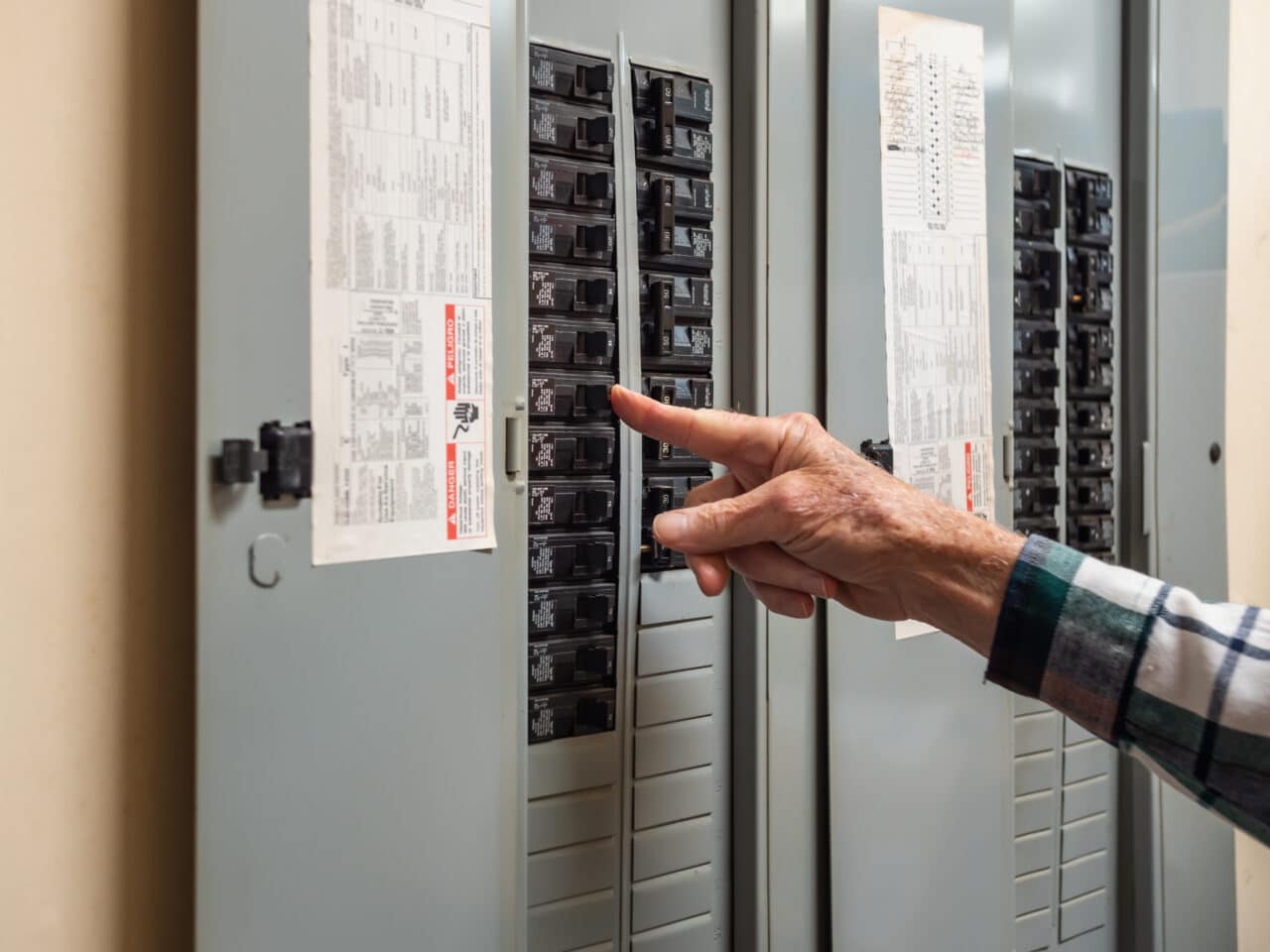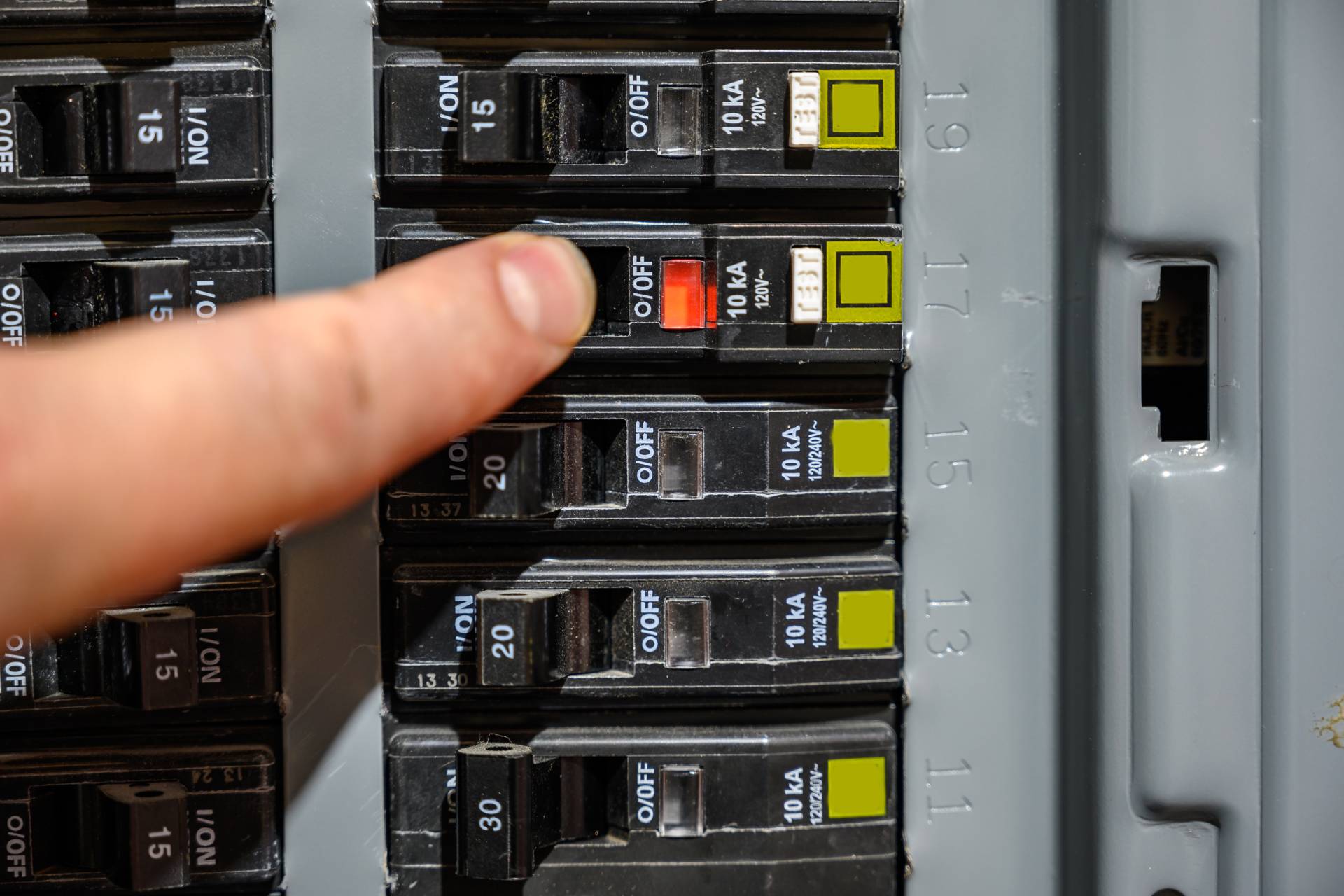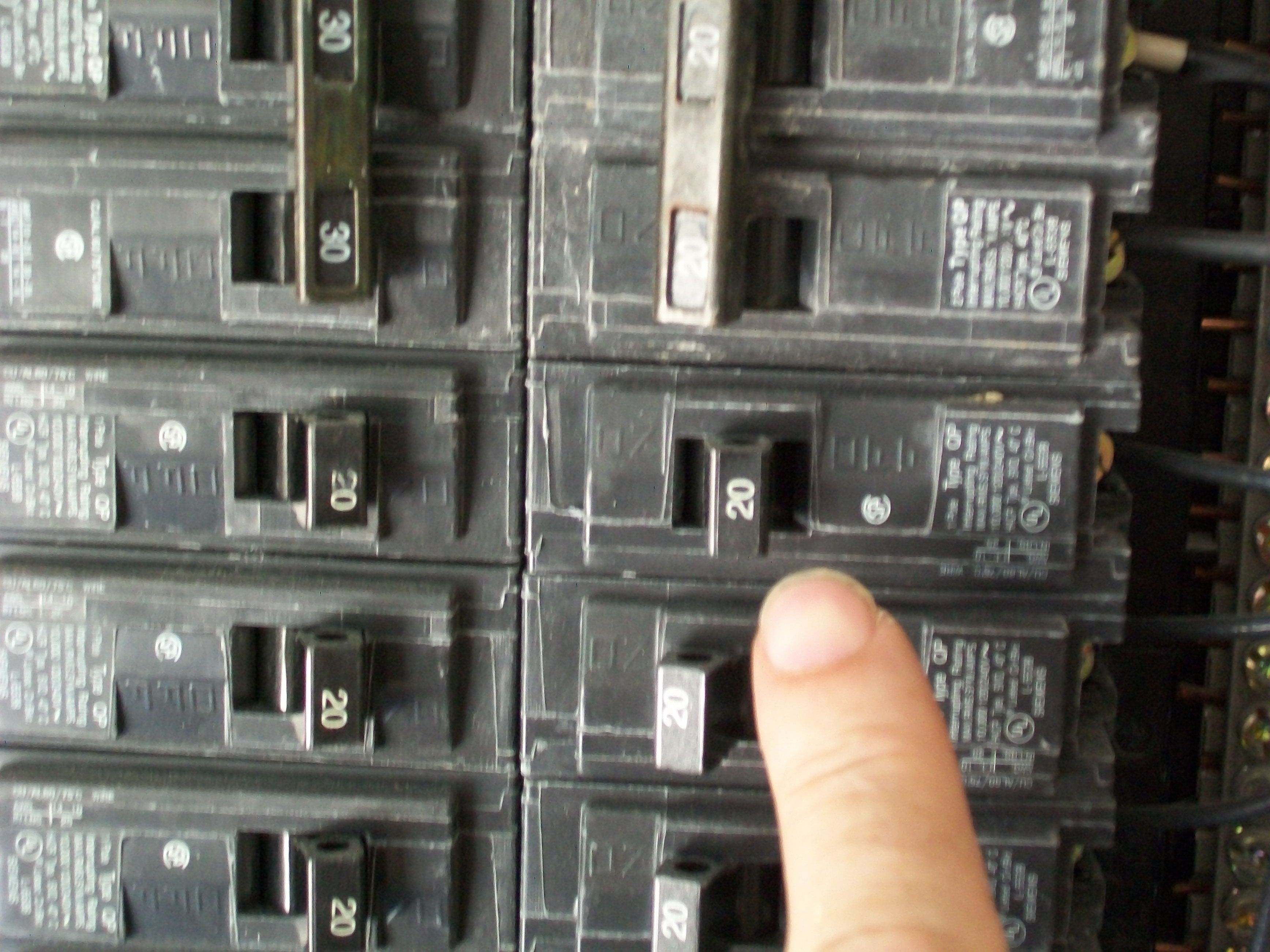Unbelievable Info About Is It OK To Leave A Breaker Tripped

How To Deal With Tripped Circuit Breakers And Blown Fuses
Is Leaving a Tripped Breaker Alone Really Okay? Let's Investigate.
1. Understanding the Basics of Breakers
Okay, so your circuit breaker tripped. The lights went out, the TV went silent, and now you're staring at that little switch, wondering what to do. The immediate question is: is it alright to just leave it tripped? Well, the short answer is: probably not. But let's dive into the reasons why, because ignoring a tripped breaker can sometimes be like ignoring a nagging cough — it might be nothing, or it could be a sign of something more serious brewing.
Circuit breakers are, essentially, your electrical system's bodyguards. They're designed to protect your wiring and appliances from overloads and short circuits. When the current flowing through a circuit gets too high, the breaker trips, cutting off the power and preventing potential hazards like overheating and fires. Think of it as a superhero swooping in to save the day, only instead of a cape, it has a little switch.
Leaving a tripped breaker unattended is like leaving a wound unaddressed. If the breaker tripped once, there was a reason. Maybe you plugged in too many devices into one outlet, or maybe there's a genuine fault in the wiring. Ignoring it means you're potentially leaving a problem to fester, and that can lead to some really unpleasant consequences down the line.
So, the rule of thumb? Investigate. Don't just flip the breaker back on and hope for the best. That's like putting a band-aid on a broken leg — it won't solve the underlying issue, and it might even make things worse. Let's figure out what caused the trip in the first place before we even think about resetting it.

Why Ignoring a Tripped Breaker Can Be a Bad Idea
2. Potential Hazards Lurking Beneath the Surface
Imagine you're driving and your car starts making a weird noise. Would you just crank up the radio and ignore it? Probably not. Similarly, ignoring a tripped breaker is like ignoring a warning sign from your electrical system. Here's the thing: repeated tripping of a breaker indicates an underlying issue that needs attention. This isn't just about inconvenience; it's about safety.
One of the most significant dangers is the risk of fire. Overloaded circuits can cause wires to overheat, melting the insulation and potentially igniting nearby flammable materials. This is especially concerning in older homes with outdated wiring. Think of it as a slow burn scenario, where the problem gets progressively worse until it reaches a critical point. Not something you want to gamble with.
Another concern is damage to your appliances and electronics. Surges of electricity can occur when a breaker repeatedly trips and is reset, potentially frying sensitive components in your devices. Suddenly, that new OLED TV isn't looking so bright anymore. Plus, continuously tripping breakers can actually damage the breaker itself, making it less effective at protecting your system in the future.
Finally, there's the potential for electrical shock. If there's a fault in the wiring, touching an appliance or a part of the electrical system could result in a serious or even fatal shock. So, while leaving a tripped breaker alone might seem harmless on the surface, it's crucial to understand that you could be playing with fire — literally and figuratively.

Troubleshooting a Tripped Breaker
3. Finding the Culprit and Fixing the Problem
Alright, so you know you shouldn't just ignore that tripped breaker. But what should you do? Here's a breakdown of how to troubleshoot the situation like a pro (or at least, someone who isn't going to electrocute themselves).
Step 1: Unplug Appliances. Before you even think about resetting the breaker, unplug all appliances and devices that are connected to the circuit that tripped. This will reduce the load on the circuit and help you determine if a particular appliance is causing the problem. Think of it as emptying the suspects from the room before you start the interrogation.
Step 2: Reset the Breaker. Now, flip the breaker switch all the way to the "off" position, and then back to the "on" position. This ensures that the breaker is fully reset. If the breaker trips again immediately, even with all appliances unplugged, that's a strong indication of a more serious problem, like a short circuit in the wiring.
Step 3: Plug in Appliances One by One. Start plugging in the appliances one at a time, and see if you can identify a specific appliance that causes the breaker to trip. If the breaker trips when you plug in a particular device, that device is likely the culprit. It might be faulty or drawing too much power. Consider having it inspected or replaced.
Step 4: Call a Professional. If the breaker continues to trip even with all appliances unplugged, or if you're uncomfortable working with electricity, it's time to call a qualified electrician. They can diagnose and repair any underlying electrical problems, ensuring your safety and the safety of your home. Remember, electricity is not something to be trifled with.

When to Call an Electrician
4. Recognizing Signs of Serious Electrical Issues
Sometimes, you can fix a tripped breaker with a simple reset and some unplugging. But other times, you're dealing with something beyond your DIY skills. Knowing when to call a professional electrician is crucial for protecting yourself and your property.
One clear sign is repeated tripping of the breaker, even after troubleshooting and unplugging appliances. This indicates a more persistent problem, such as a short circuit or an overloaded circuit, that requires expert attention. Similarly, if you notice any burning smells coming from outlets, switches, or appliances, that's a definite red flag. Unplug the affected device immediately and call an electrician without delay.
Another warning sign is flickering lights or dimming lights, especially when you turn on an appliance. This suggests that the circuit is overloaded or that there's a problem with the wiring. Buzzing sounds from outlets or switches are also cause for concern, as they could indicate loose connections or arcing. Finally, if you see any signs of damage to your electrical panel, such as rust, corrosion, or broken components, do not attempt to fix it yourself. Call an electrician immediately to assess the damage and make necessary repairs.
In general, if you're uncomfortable working with electricity, or if you're not sure what's causing the breaker to trip, it's always best to err on the side of caution and call a professional. Electricity is a powerful force, and it's not worth risking your safety or the safety of your home.

Preventing Breaker Trips
5. Smart Habits for a Smooth Electrical System
Wouldn't it be great to avoid those pesky tripped breakers altogether? Well, while you can't eliminate them entirely, there are several things you can do to minimize the chances of them happening, keeping your electrical system humming along smoothly.
Spread the Load. Avoid overloading circuits by spreading your appliances and devices across different outlets and circuits. Don't plug multiple high-power devices, like space heaters or hair dryers, into the same outlet. Use power strips with built-in surge protectors to help manage the load and protect your electronics from voltage spikes. Think of it like weight distribution in a truck; even things out.
Upgrade Your Wiring. If you live in an older home, consider upgrading your electrical wiring to meet the demands of modern appliances and electronics. Outdated wiring can be a major cause of overloaded circuits and frequent breaker trips. An electrician can assess your wiring and recommend upgrades, such as installing new circuits or increasing the amperage of existing ones.
Regular Inspections. Schedule regular electrical inspections to identify potential problems before they escalate. An electrician can check your wiring, outlets, switches, and electrical panel for signs of wear and tear, damage, or code violations. Early detection and repair can prevent costly repairs and ensure the safety of your home.
Use Energy-Efficient Appliances. Opt for energy-efficient appliances and lighting to reduce your overall energy consumption and minimize the load on your electrical system. Look for appliances with the Energy Star label, which indicates that they meet strict energy efficiency standards. Small changes can make a big difference in reducing your electrical load.

What Is A Tripped Circuit Breaker
FAQ
6. Answers to Common Questions
Still got questions about tripped breakers? Here are a few frequently asked questions (and answers!) to help clear things up:
Q: Is it dangerous to keep resetting a breaker that keeps tripping?
A: Yes! Repeatedly resetting a tripping breaker without addressing the underlying issue is dangerous. It can lead to overheating, fire, and damage to your appliances and electrical system. Find the cause before resetting.
Q: What does it mean if a breaker trips immediately after I reset it?
A: If a breaker trips immediately after being reset, it usually indicates a short circuit or a very serious overload. Unplug all appliances on that circuit and try again. If it still trips immediately, call an electrician. Do not continue to try resetting it.
Q: Can a bad circuit breaker cause appliances to malfunction?
A: Yes, a faulty circuit breaker can cause appliances to malfunction. A damaged or malfunctioning breaker might not trip when it's supposed to, which can lead to voltage fluctuations or power surges that damage your appliances. Conversely, it might trip unnecessarily, preventing your appliances from working at all.